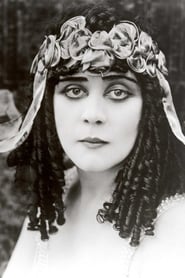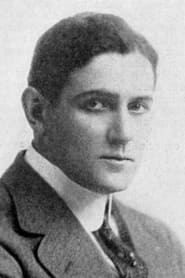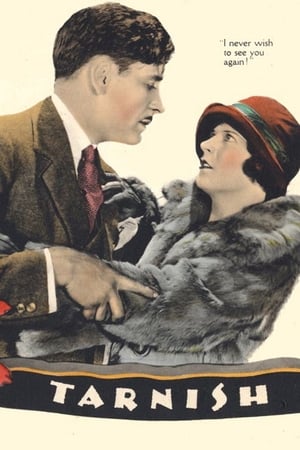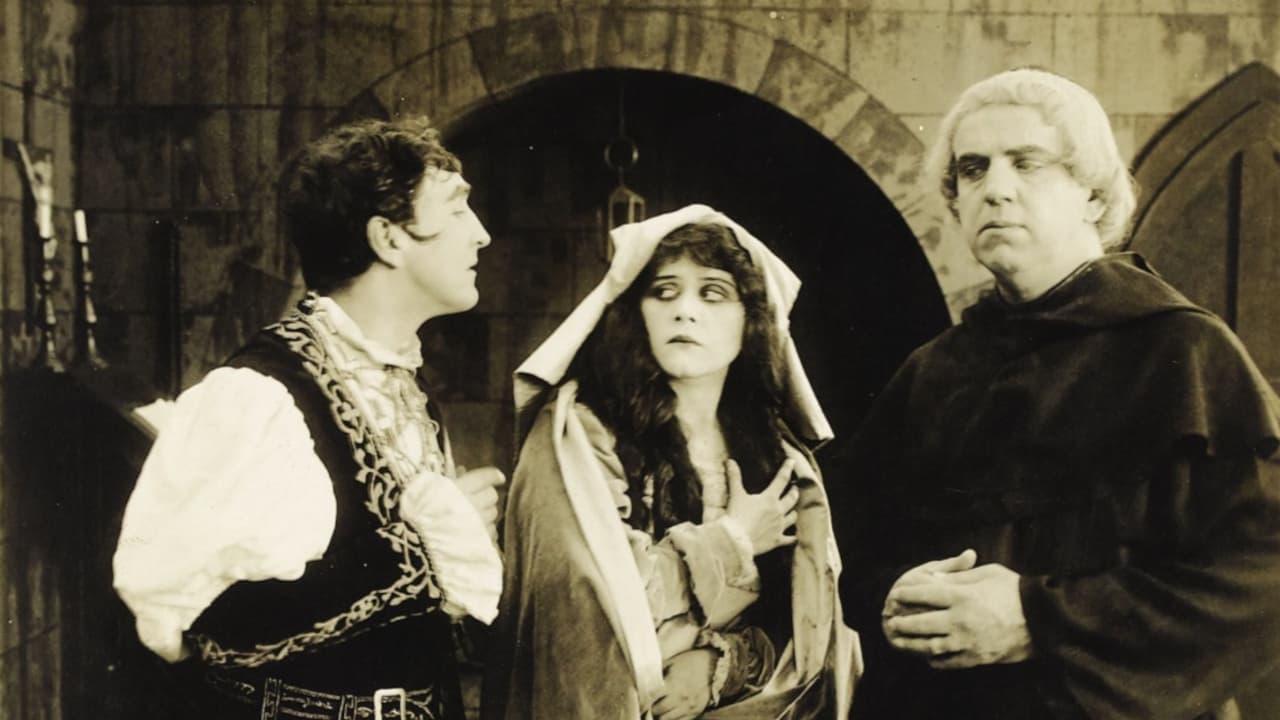
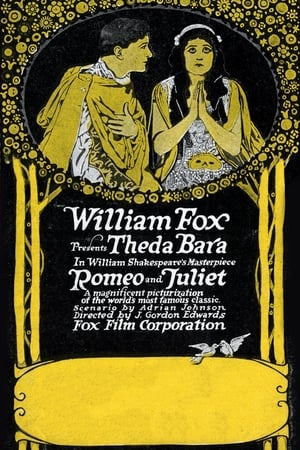
Romeo and Juliet(1916)
Shakespeare's tragedy of two young people who fall desperately in love despite the ancient feud between their two families. A lost film.

Movie: Romeo and Juliet
Top 10 Billed Cast
Tybalt
Paris
Montague
Nurse
Lady Capulet
Lady Montague

Romeo and Juliet
HomePage
Overview
Shakespeare's tragedy of two young people who fall desperately in love despite the ancient feud between their two families. A lost film.
Release Date
1916-10-21
Average
0
Rating:
0.0 startsTagline
Genres
Languages:
Keywords
Similar Movies
The Man, the Mission and the Maid(en)
Living in adjoining homes at Oakdale, Hal Oilman and Alice Blanchard are childhood friends and playmates. Some years later. Hal goes to college, and while there makes a bitter enemy of Bert Peyson by exposing him as a card cheat and a thief.
 7.7
7.7Stalag 17(en)
It's a dreary Christmas 1944 for the American POWs in Stalag 17 and the men in Barracks 4, all sergeants, have to deal with a grave problem—there seems to be a security leak.
 6.5
6.5Blackmail(en)
London, 1929. Frank Webber, a very busy Scotland Yard detective, seems to be more interested in his work than in Alice White, his girlfriend. Feeling herself ignored, Alice agrees to go out with an elegant and well-mannered artist who invites her to visit his fancy apartment.
The Geranium(en)
One glance at the poor and disordered home of the Tunisons shows us there is something still lacking. Mrs. Tunison is obliged to provide for her crippled daughter Ethel, her son, who does what he can to help her and her older daughter, who aids in every way possible. Daniel Briton, a young peddler, notices Ethel as he passes by, and gives her one of his wares, a geranium, for which she is very thankful. On successive days as the young peddler passes she waves her hand to him. One day he brings with him a doctor, who takes her to the hospital where she will get good care and attention. After a few weeks, Ethel is carried home in the arms of her generous friend, entirely restored to health. Everybody is made happy, and more so with Daniel, who marries one of Ethel's sisters.
Porgy and Bess(en)
In the early 1900s, the fictional Catfish Row section of Charleston, South Carolina serves as home to a black fishing community. Crippled beggar Porgy, who travels about in a goat-drawn cart, loves the drug-addicted Bess, who lives with stevedore Crown, the local bully.
 7.8
7.8The Whale(en)
A reclusive English teacher suffering from severe obesity attempts to reconnect with his estranged teenage daughter for one last chance at redemption.
 2.0
2.0Yegor Bulychyov and Others(ru)
In the center of the film is a powerful, peculiar, talented Russian man, the largest timber merchant Yegor Bulychyov. He is experiencing a tragic discord with himself, with the world that surrounds him, with great social injustice, to which his whole life has been given. The idea of the film is to determine the purpose and meaning of the existence of the human person, consider its polysyllabic and versatile connections with the world.
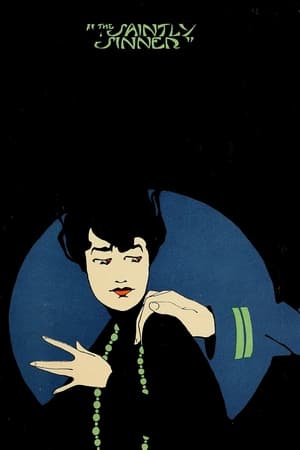 0.0
0.0The Saintly Sinner(en)
When her father goes broke in the stock market, Jane Lee is forced to leave her prestigious boarding school. Glad-handing John Brock, an old friend of Jane's father, arranges for the girl to be hired as his stenographer. But Brock's lecherous ulterior motives become obvious when he locks Jane in the office and tries to rape her. When she manages to escape his advances, Brock vengefully frames the girl on a robbery charge.
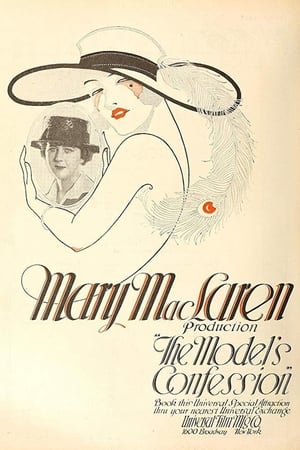 0.0
0.0A Model's Confession(en)
An important customer at Armande's, where Iva Seldon works as a model, is Billy Ravensworth, who purchases expensive gowns for a heartless vampire named Rita Challoner. When Billy pays for a number of gowns with a bad check, Iva is sent to Rita's home to collect the finery, and there she meets Bertrand Seldon, whom she recognizes as her own father, a society man who had deserted his wife years earlier and never acknowledged Iva. Rita learns that Billy is poor and breaks off their affair, after which Iva persuades him to pose as her fiancé so that she might enter society. Billy is content to maintain the masquerade in exchange for Iva's money, but soon finds himself jealous over her apparent romance with Bertrand. Iva agrees to accompany Bertrand on a drive, but the car plunges down a cliff, whereupon she reveals her identity. Before his death, Bertrand at last recognizes his daughter, and with his fortune, she and Billy begin a new life.
La Leona de Castilla(es)
Crown of Castile, 1520. The Comuneros rise up against Charles I, king of Castile and Aragon and emperor of the Hispanic Monarchy. While Juan de Padilla, leader of the uprising, and his captains, Juan Bravo and Francisco Maldonado, fight against the imperial armies, his wife, María de Pacheco, rules the city of Toledo, capital of the rebels.
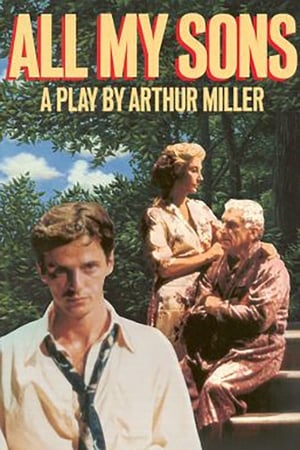 0.0
0.0All My Sons(en)
Two families, related by friendship and love, face up to the consequences of greed and avarice in the post-war years. Love and death play equal roles in determining the outcome of events.
 0.0
0.0Children of Jazz(en)
Babs Weston agrees to marry adventurer Richard Forestall before his hasty departure, accepting his ring and promising to be faithful. Richard returns to find that his fiancée has become a "victim of jazz" and is engaged to two other men, one of whom is not yet divorced. He leaves Babs and visits his parents on their island in the Caribbean Sea, where, by coincidence, Babs and some of her thrill-seeking friends become stranded. Richard proceeds to reform the young wastrels by giving them useful occupations, and wins Babs over to a more healthful life.
 5.0
5.0The Face on the Barroom Floor(en)
As a derelict paints the face of a girl on a barroom floor, the plot is developed in a series of flashbacks: Robert Stevens, an artist engaged to marry Marion, a society girl, becomes charmed with a fisherman's daughter who poses for him. The society girl's brother brings dishonor upon the fisherman's daughter, and when she commits suicide the artist shields the brother. Stevens is blamed by his fiancée, who terminates their engagement. The artist becomes a derelict and is wrongfully imprisoned. Eventually Stevens is exonerated and reunited with Marion.
 7.7
7.7Cat on a Hot Tin Roof(en)
An alcoholic ex-football player drinks his days away, having failed to come to terms with his sexuality and his real feelings for his football buddy who died after an ambiguous accident. His wife is crucified by her desperation to make him desire her: but he resists the affections of his wife. His reunion with his father—who is dying of cancer—jogs a host of memories and revelations for both father and son.
 8.0
8.0Amadeus(en)
Disciplined Italian composer Antonio Salieri becomes consumed by jealousy and resentment towards the hedonistic and remarkably talented young Viennese composer Wolfgang Amadeus Mozart.
 7.3
7.3Meet Joe Black(en)
William Parrish, media tycoon and loving father, is about to celebrate his 65th birthday. One morning, he is contacted by the inevitable, by hallucination, as he thinks. Later, Death enters his home and his life, personified in human form as Joe Black. His intention was to take William with him, but accidentally, Joe and William's beautiful daughter Susan have already met. Joe begins to develop certain interest in life on Earth, as well as in Susan, who has no clue with whom she's flirting.
 8.5
8.512 Angry Men(en)
The defense and the prosecution have rested and the jury is filing into the jury room to decide if a young Spanish-American is guilty or innocent of murdering his father. What begins as an open and shut case soon becomes a mini-drama of each of the jurors' prejudices and preconceptions about the trial, the accused, and each other.
 7.7
7.7Who's Afraid of Virginia Woolf?(en)
A history professor and his wife entertain a young couple who are new to the university's faculty. As the drinks flow, secrets come to light, and the middle-aged couple unload onto their guests the full force of the bitterness, dysfunction, and animosity that defines their marriage.
